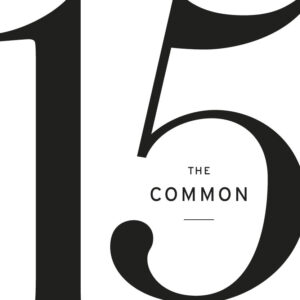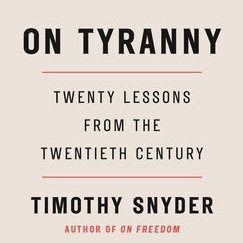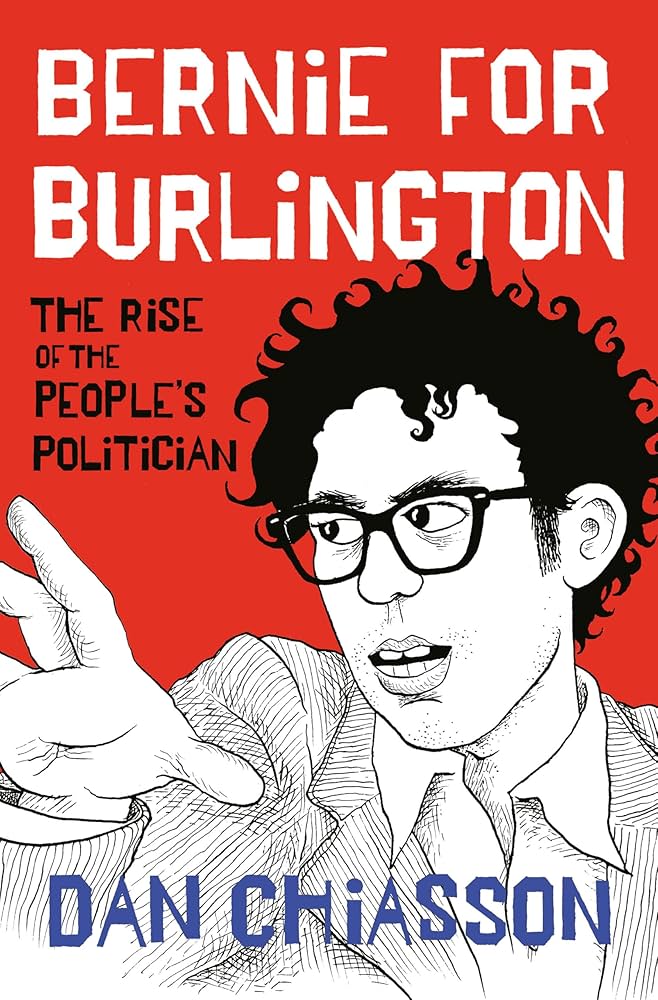
The Reading Life is a special 15th-anniversary essay series reflecting on close reading and re-reading, written by The Common’s Editorial Board.
Consider not teaching, cancelling class, staying at home in bed.
Force yourself to go to campus anyway.
Remind the twelve undergraduates gathered around the seminar table that after the 2016 election, the historian Timothy Snyder published a tiny book called On Tyranny about how democracies fail and authoritarian systems thrive. Present your comments as a reminder. Recognize the pettiness of your annoyance that they haven’t heard of this book. Recognize that it may be misdirected. Understand that fist grabbing your heart as anger.
Share with them some of what Snyder said, paraphrased less eloquently. Remind yourself that eloquence may be beyond you today.
Lay out his claims that until recently, we Americans had convinced ourselves that there was nothing in our future but more of the same, and history would move only in one direction: toward liberal democracy, expanding globalization, deepening reason, and growing prosperity. Such complacency was an intellectual coma; such thinking antihistorical.
Make eye contact. Some students are attentive, some bored. This is as it always has been.
Tell them more about Snyder, though register the impatience drifting through the room. Snyder on how the seduction of a mythologized past prevents us from thinking about possible futures. Snyder on how the habit of dwelling on victimhood dulls the impulse of self-correction. Remind them this is a notion they should find familiar from class discussions. Watch some tune back in.
Lay out how once a nation is defined by its virtue rather than by its potential, politics becomes a discussion of good and evil rather than possible solutions to real problems. And how if you once believed that everything always turns out well in the end, you can be persuaded that nothing turns out well in the end. If you once did nothing because you imagined progress to be inevitable, then you can continue to do nothing for the opposite reason.
Mention Snyder’s claim that both positions are antihistorical. And that what exposes them both is history itself. Add “and literature.” Watch them think: relevance. And: how long is she going to go on?
Wonder if this is self-indulgent, more about you than the moment. But even you, the consummate compartmentalizer, cannot imagine compartmentalizing today.
Go on about history and literature: they’re stories that allow us to see patterns and make judgements. They sketch for us the structures within which we can seek freedom and permit us to be responsible, not for everything, but for something. They give us the company of those who have done and suffered more than we have.
But to make history, Americans will have to know some. This is where we can begin, Snyder says, and then he ends with Shakespeare.
In Hamlet, the hero registers “The time is out of joint. O cursed spite/That ever I was born to set it right.” Yet he concludes: “Nay, come, let’s go together.”
Face the twelve of them, so young your heart seizes. Say: I thought we might remind ourselves of some of the moments from our reading this semester. Say: This is where we can begin.
Listen together as they take turns reading.
Lorrie Moore, People Like That Are the Only People Here:
“What words can be uttered? You turn just slightly and there it is: the death of your child. It is part symbol, part devil, and in your blind spot all along, until, if you are unlucky, it is completely upon you. Then it is a fierce little country abducting you; it holds you squarely inside itself like a cellar room—the best boundaries of you are the boundaries of it. Are there windows? Sometimes, aren’t there windows?”
Amy Hempel, In the Cemetery Where Al Jolson is Buried:
“And when the baby died, the mother stood over the body, her wrinkled hands moving with animal grace, forming again and again the words: Baby, come hug, Baby, come hug, fluent now in the language of grief.”
Ling Ma, Peking Duck:
“Her English is awkward and mangled, and it’s not easy to move through the world shielded from the unkindness of others by only their thin veneer of liberal respectability.”
Danielle Evans, Harvest:
“So far I had not accepted the seriousness of this problem. I didn’t like to think about the future, and we were only juniors, so I didn’t quite have to.”
Kali Fajardo Anstine, Tomi:
“I looked at him and saw how scared and sad and small he was. His glasses were back on his face, magnifying his brown eyes. In his lap, he roped his hands over his tummy. I immediately felt worse for being there. What kind of people were we?”
Tobias Wolff, Bullet in the Brain:
“The bullet is already in the brain; it won’t be outrun forever, or charmed to a halt. In the end it will do its work and leave the troubled skull behind, dragging its comet’s tail of memory and hope and talent and love into the marble hall of commerce. That can’t be helped. But for now Anders can still make time.”
Alice Sola Kim, Mothers, Lock Up Your Daughters Because They Are Terrifying:
“Usually, we liked to take a moment at the end of the night without Caroline, to discuss the events of the night without someone to remind us how young we were and how little we knew. But tonight we didn’t really talk. We didn’t talk about how we believed, and how our belief had been shattered.”
Aimee Bender, The End of the Line:
“The little man folded his hands under his cheek in a pillow. Pain was no longer a mystery to him, and a man familiar with pain has entered a new kind of freedom. ‘No,’ he whispered into his knuckles.”
Manuel Gonzales, The Miniature Wife:
“The truth of the matter is: I have managed to make my wife very, very small.”
Ottesh Moshfegh, An Honest Woman:
“Babe. No one in Jeb’s life had ever called him babe. ‘Jeb’ was as sweet a name as he’d ever gone by, and still it had an ugly, rubbery ring to it, like a name for a dishwashing detergent or soap used to mop prison floors. Jeb. It was short for Jebediah. But nobody ever asked him to explain it. Nobody could bear to look at him, he thought, much less sit and listen to him talk.”
Mary Gaitskill, This is Pleasure:
“At this newsstand, I know the proprietor; he catches my eye and tactfully registers my tears with the slightest change in his expression. Deep in his cave of fevered headlines and gaudy faces, he shivers with cold and fights to breathe; his lungs are failing as he sells magazines and bottled water, mints and little basil plants. We greet each other; I don’t say but I think, Hello, brother.”
Claire Keegan, So Late in the Day:
“’You know what is at the heart of misogyny? When it comes down to it?’
‘So, I’m a misogynist now?’
‘It’s simply about not giving,’ she said.”
Raymond Carver, Cathedral:
“’We’re drawing a cathedral. Me and him are working on it. Press hard,’ he said to me. ‘That’s right. That’s good,’ he said. ‘Sure. You got it, bub. I can tell. You didn’t think you could. But you can, can’t you? You’re cooking with gas now.’”
Jo Ann Beard, The Fourth State of Matter:
“We are in this together, the dying game…”
Amy Bloom, Silver Water:
“’Warrior queens,’ she said, wrapping her thin strong arms around me. ‘I raised warrior queens.’”
Gina Chung, The Arrow:
“She does not tell you that she loves you, nor does she tell you that everything is going to be okay, because both of you are past believing things like that. And as the sun climbs over the lip of the sky, and the two of you watch its ascent, gold filling the corners of your apartment, you begin to understand that there is only this moment, and then the next, and then the next, and that the only thing to do in the meantime is to keep on living.”
End with George Saunders’ Love Letter. Someone over 50 should read this one, and you’re the only one of those in the room.
“Your grandmother and I (and many others) would have had to be more extreme people than we were, during that critical period, to have done whatever it was we should have been doing. And our lives had not prepared us for extremity, to mobilize or to be as focused and energized as I can see, in retrospect, we would have needed to be. We were not prepared to drop everything in defense of a system that was, to us, like oxygen: used constantly, never noted. We were spoiled, I think I am trying to say. As were those on the other side: willing to tear it all down because they had been so thoroughly nourished by the vacuous plenty in which we all lived, a bountiful condition that allowed people to thrive and opine and swagger around like kings and queens while remaining ignorant of their own history.”
“I wish with all my heart that we could have passed it on to you intact. I do. That is, now, not to be. That regret I will take to my grave.”
That fist around your heart is anger and sadness. Why shouldn’t you share the news? Isn’t that what this class, what literature, is all about?
One girl in the corner still looks bored. The boys are still the boys. The fist still grips your heart. But it’s something. It’s not nothing. You’ll take it.
Karen Shepard is a Chinese-American born and raised in New York City. She is the author of four novels, An Empire of Women, The Bad Boy’s Wife, Don’t I Know You?, and The Celestials, and one story collection, Kiss Me Someone. Her short fiction has appeared in The Atlantic Monthly and Tin House, among others, and her nonfiction has appeared in O Magazine, Buzzfeed, and The Boston Globe, among others. She teaches at Williams College.




